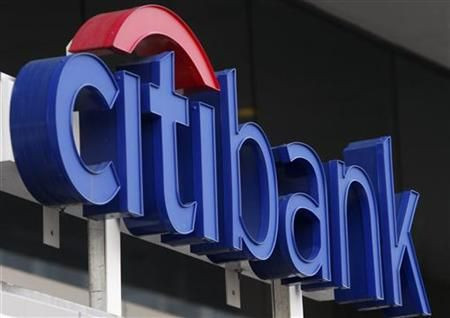Banks entering 'Golden Age': Bove

High-profile banking analyst Richard Bove said the U.S. banking sector is entering into a “golden age.” The financial strategist at Rochdale Securities explains that banks have so flush cash on their balance sheets that corporate earnings will grow by 20 percent annually over the next few years.
Indeed, since the March 2009 market lows, banks have far outperformed the broader market. Since that trough, the S&P Financial Index and the KBW Bank Index have surged 164.5 percent and 172.8 percent, compared with a more pedestrian 89.8 percent gain for the S&P 500.
"There's so much cash in some of the banks in the United States that they're actually selling at below their cash value per share," Bove told CNBC. "For example, Citigroup (NYSE: C), Bank of America (NYSE: BAC), Bank of New York (NYSE: BK), State Street (NYSE: STT), Northern Trust (Nasdaq: NTRS)—they all sell at below their cash per share."
History repeats itself, Bove indicated.
“In 1990, the balance sheets of the banks were shaken up by the financial crisis that had existed before that time, and the same thing is going to happen now,” he noted.
Now, Bove believes, banks have such tremendous liquidity that can ultimately be put to use to generate further earnings growth – on the order of 20 percent annual profit gains over the next two to three years, far above industrial averages.
Bove cites that 28 percent of bank assets are in cash, non-performing loans are declining, and delinquencies have eased.
"Bad loans are coming down in the industry," Bove said. "Charge-offs are coming down. Essentially we're talking about ancient history."
Bove also rejected the notion that banks have driven their gains through the auspices of federal stimulus, citing that banks “don’t need” money from the government or the Federal reserve’s easy credit policies.
“Over the last three years [since the crisis began] banks have raised $100-billion in the open market from investments in common equity; and increased by $76-billion the retained earnings of the industry,” he said.
"Banks have shifted out of loans… and increased their holdings of Treasuries and cash-like items. So, they've completely restructured their balance sheets.”
In addition, with the completion of the Dodd-Frank financial regulatory overhaul, banks will likely introduce new financial products that “no one is going to like but which are going to be very profitable for the banking industry."
Bove further rejected the idea that banks are facing tremendous liabilities arising from the ongoing foreclosure crisis.
"They're legal problems, not financial problems," he explained. "If you think about it, the banking industry is almost like the tobacco industry or the asbestos industry. And by that I mean, for the next five to seven years, they're going to have to allocate a big chunk of revenue simply to paying legal bills."
However, Bove doesn’t think that these ongoing legal expenses will seriously impact bank earnings.
Bove’s favorite picks in the sector include Citigroup, Goldman Sachs (NYSE: GS); Lazard (NYSE: LAZ); Bank of New York and Wells Fargo (NYSE: WFC).
© Copyright IBTimes 2025. All rights reserved.





















